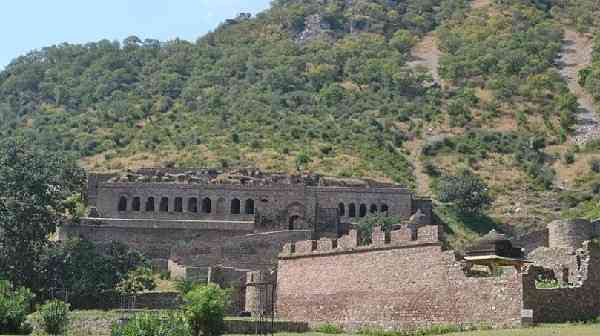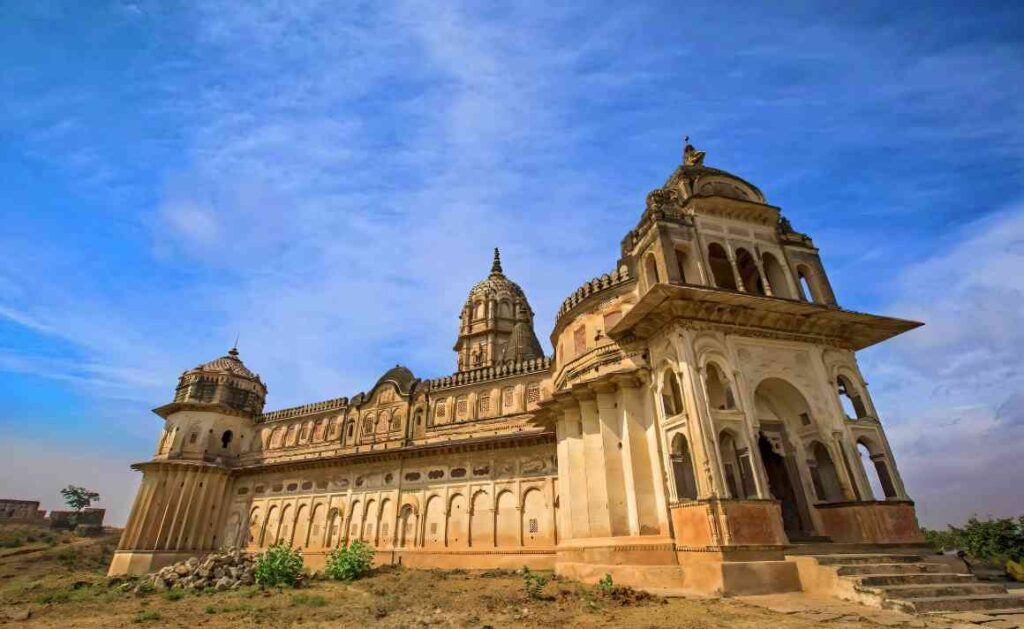The Unbreakable Bond of Veer Singh Bundela and Emperor Jahangir
In the illustrious era of the Mughals, the visionary Emperor Akbar expanded his empire beyond the formidable Narmada River, conquering the Deccan region. However, Bundelkhand remained a stronghold governed by the valiant Bundelas. Veer Singh Bundela, the son of Maharaja Madhukar Shah, held dominion over the magnificent Badoni region. Meanwhile, within the opulent walls of Agra’s imperial palace, the Mughal dynasty grappled with the simmering ambitions of Akbar’s eldest son, Salim, who ignited the flames of rebellion against his father’s reign. Sensing the urgency to quell Salim’s revolt, Emperor Akbar handpicked Abul Fazl, one of his esteemed nine courtiers. Not only was Abul Fazl an accomplished military commander, but he was also renowned for his literary prowess.

At that time, Abul Fazl had halted his victorious campaign in the Deccan, finding respite within the impregnable fortress of Asirgarh. Upon receiving the emperor’s command, Abul Fazl swiftly marshaled a formidable army, ready to crush Salim’s rebellion. News of Abul Fazl’s march reached the ears of Veer Singh Bundela, who recognized a golden opportunity to solidify his friendship with Salim. Seeking counsel from his trusted advisor, Champat Rai, they devised a plan to intercept Abul Fazl’s army near the rustic village of Aatari, nestled in the heart of Gwalior.
With unwavering determination, Veer Singh and his gallant troops ambushed Abul Fazl’s army, sealing the commander’s fate. Veer Singh presented Abul Fazl’s head as a symbol of unwavering friendship to Salim, standing proudly in the august presence of Emperor Akbar. Delighted by Veer Singh’s unparalleled gesture, Salim extended his hand in eternal friendship. Thus, a profound bond of camaraderie was forged between the Bundelas and the Mughals.
The Rise of Emperor Jahangir and Veer Singh’s Enduring Contribution
As Salim ascended the imperial throne and became Emperor Jahangir, he wasted no time in fulfilling his promises. Recognizing Veer Singh Bundela’s loyalty and valor, Jahangir bestowed upon him the prestigious Mansabdar rank of three thousand, declaring him the ruler of the majestic land of Orchha. As the golden sun kissed the horizon, Orchha bore witness to the birth of a resplendent palace, an architectural marvel blending the grandeur of Bundela and Mughal styles. Even today, this magnificent palace stands as a testament to the historical friendship between the Bundelas and the Mughals.

In addition to the grand palace, Veer Singh commanded the construction of the divine Lakshmi Narayan Temple, perched atop a verdant hill. Adorned with wings outspread in the form of an owl, the emblem of Goddess Lakshmi, this temple symbolizes abundance and prosperity. Veer Singh’s visionary endeavors extended beyond the borders of Orchha, as he erected several palaces and forts in the neighboring regions. Among these architectural marvels are the fortresses of Orchha, Jhansi, Datia, Dhamoni, and the magnificent Veer Singh Mahal in Datia. Jehangir himself extended his support to these endeavors, cherishing his unbreakable bond with Veer Singh Bundela.
Veer Singh Bundela, the Paragon of Friendship and Justice
Veer Singh Bundela, an ardent patron of art and a just ruler, is revered for his unwavering commitment to justice. Among the many tales that exemplify his sense of justice, one shines brighter than the rest. In a regal court adorned with opulence, Veer Singh pronounced a solemn verdict against his very own son, setting an unprecedented example of justice. The incident unfolded when Veer Singh’s son, Bagh Bahadur, ventured into the dense jungles, pursuing a magnificent deer. The chase led Bagh Bahadur deeper into the wilderness, where he encountered a yogi immersed in intense meditation or austere penance.

Believing that the yogi had witnessed the deer’s escape, Bagh Bahadur sought answers, only to be met with silence. Bound by a vow of silence, the yogi did not respond to any of Bagh Bahadur’s inquiries. Exhausted and consumed by frustration, Bagh Bahadur succumbed to anger and commanded his hunting dogs to attack the silent yogi. In an instant, the hounds pounced upon the defenseless yogi, extinguishing his mortal existence. News of this tragic event reached Veer Singh, and he, driven by an unwavering sense of justice, resolved to deliver justice, even if it meant confronting a heart-wrenching trial.
In a grand assembly of nobles, Veer Singh decreed that his son be shackled and brought before the famished hunting dogs, just as he had commanded them to attack the yogi. In this audacious act, Veer Singh exemplified his dedication to justice, even in the face of immense personal anguish and sacrifice.
The story of Veer Singh Bundela and Emperor Jahangir stands as a testament to the enduring power of friendship and the pursuit of justice. In an era where leaders often succumb to the allure of power, Veer Singh’s legacy shines as a reminder of the timeless values that shape our world. Embark on a captivating journey through the enchanting tale of Veer Singh Bundela, his unbreakable bond with Emperor Jahangir, and the rich historical heritage that unfolds in the captivating city of Orchha, India.